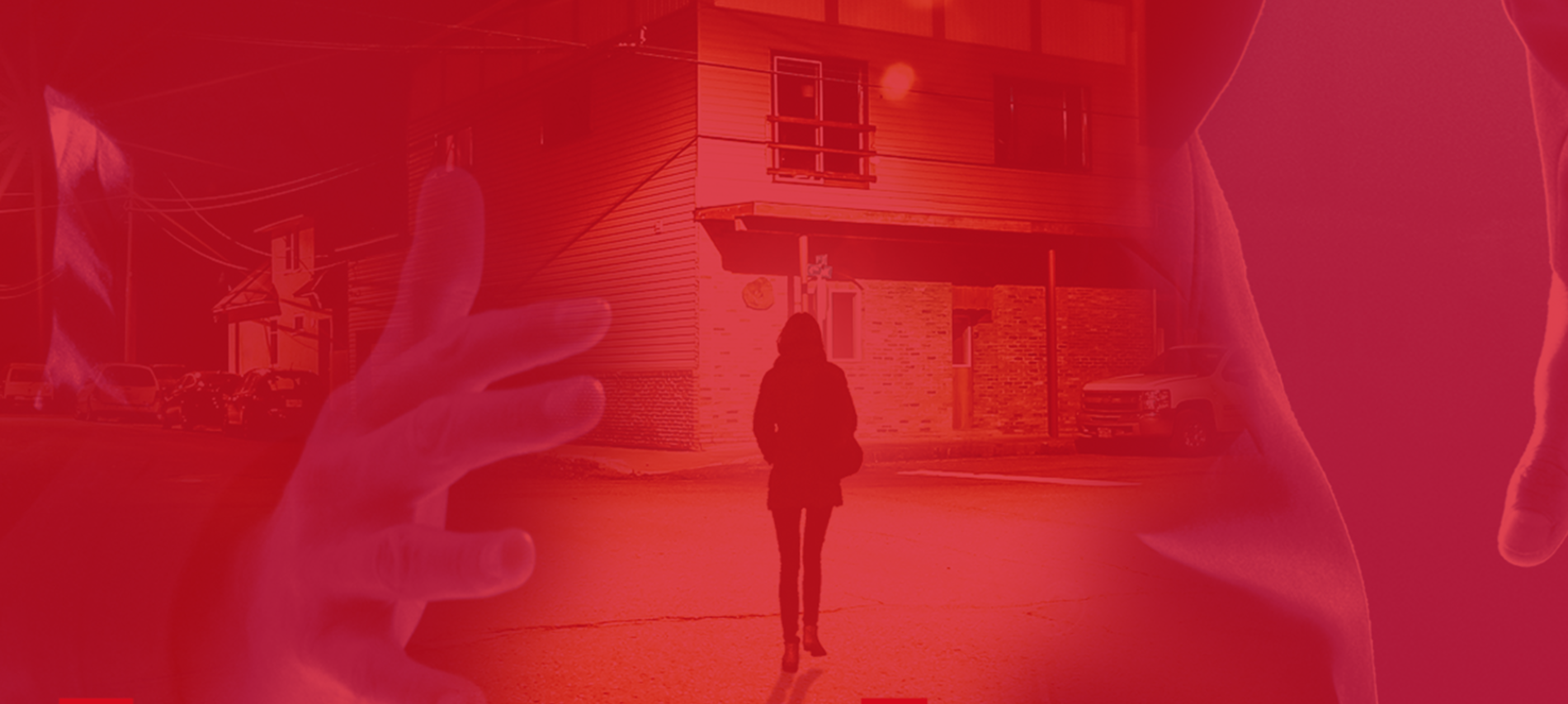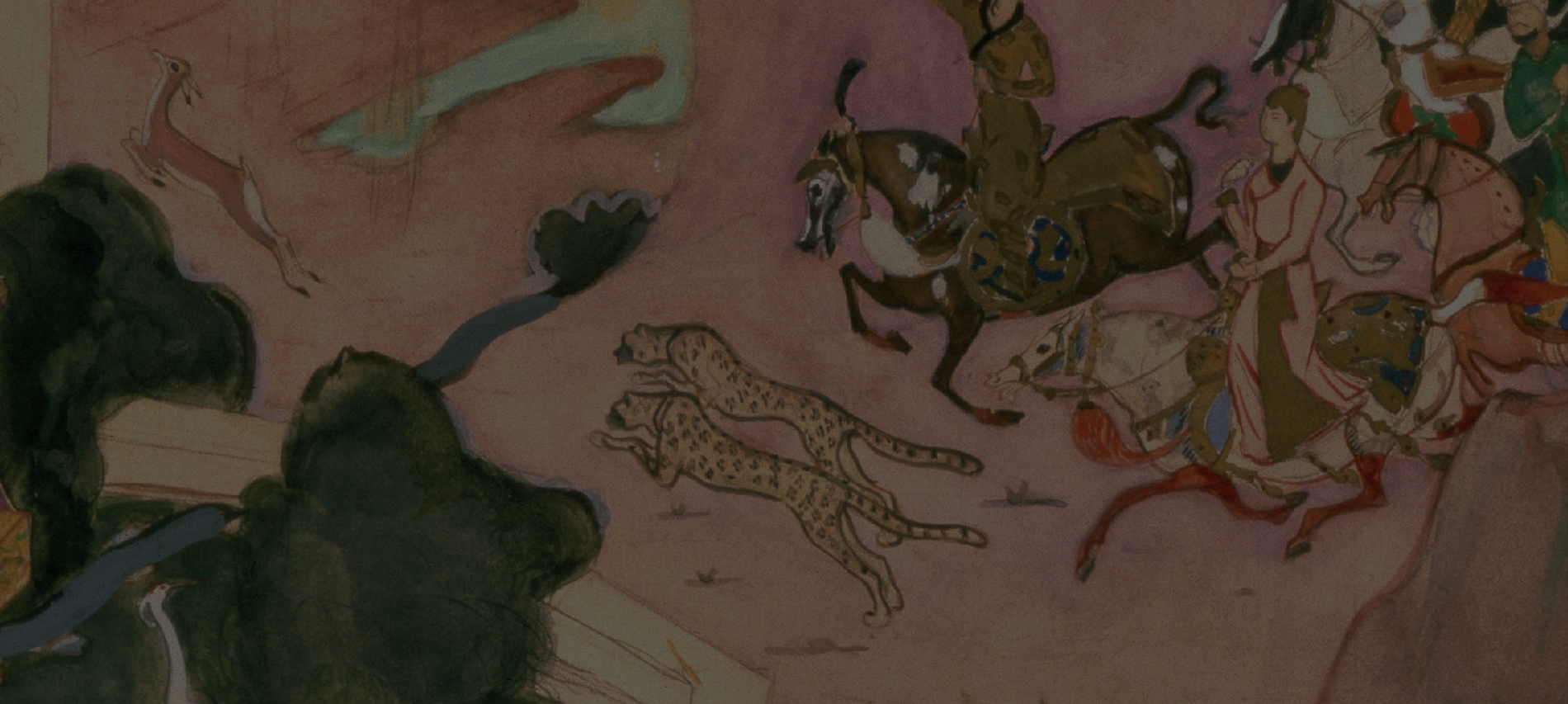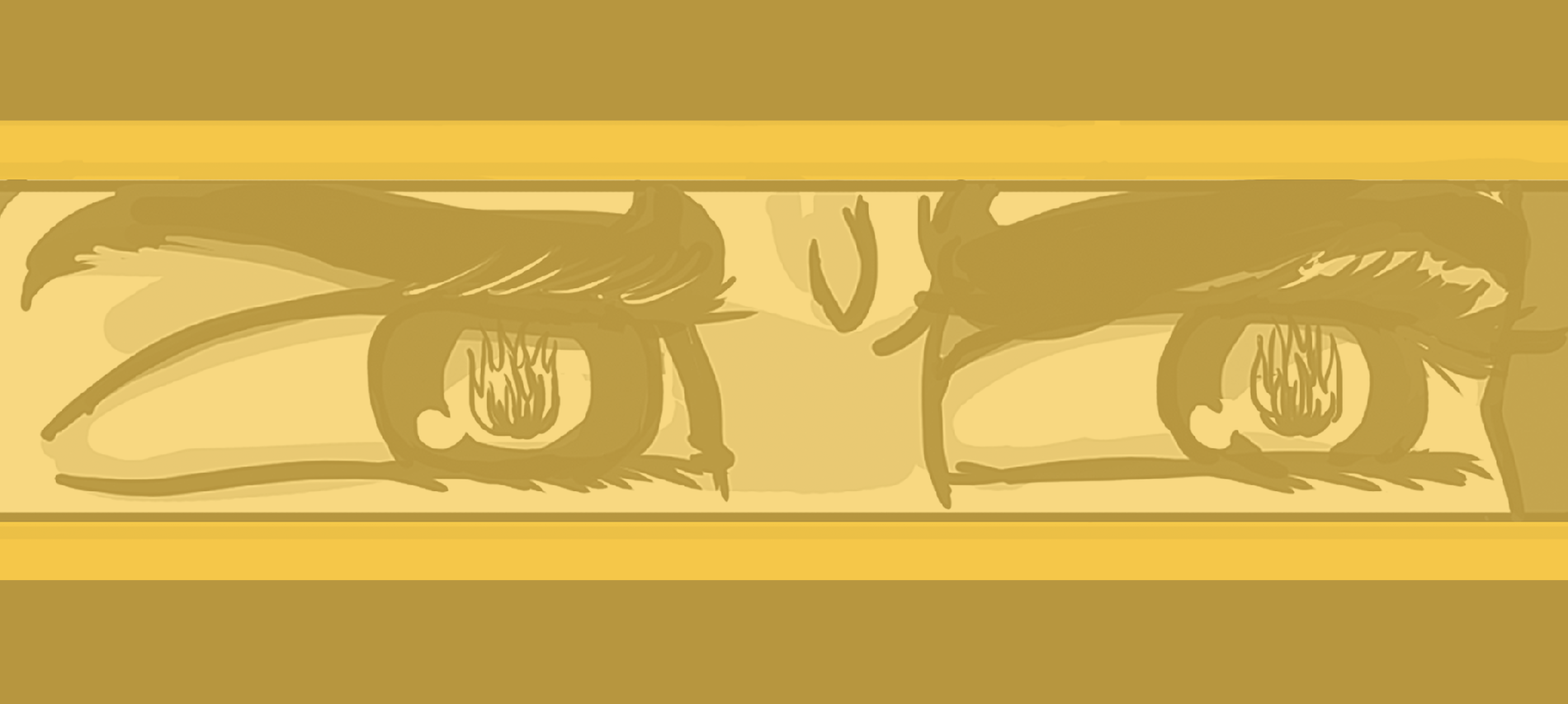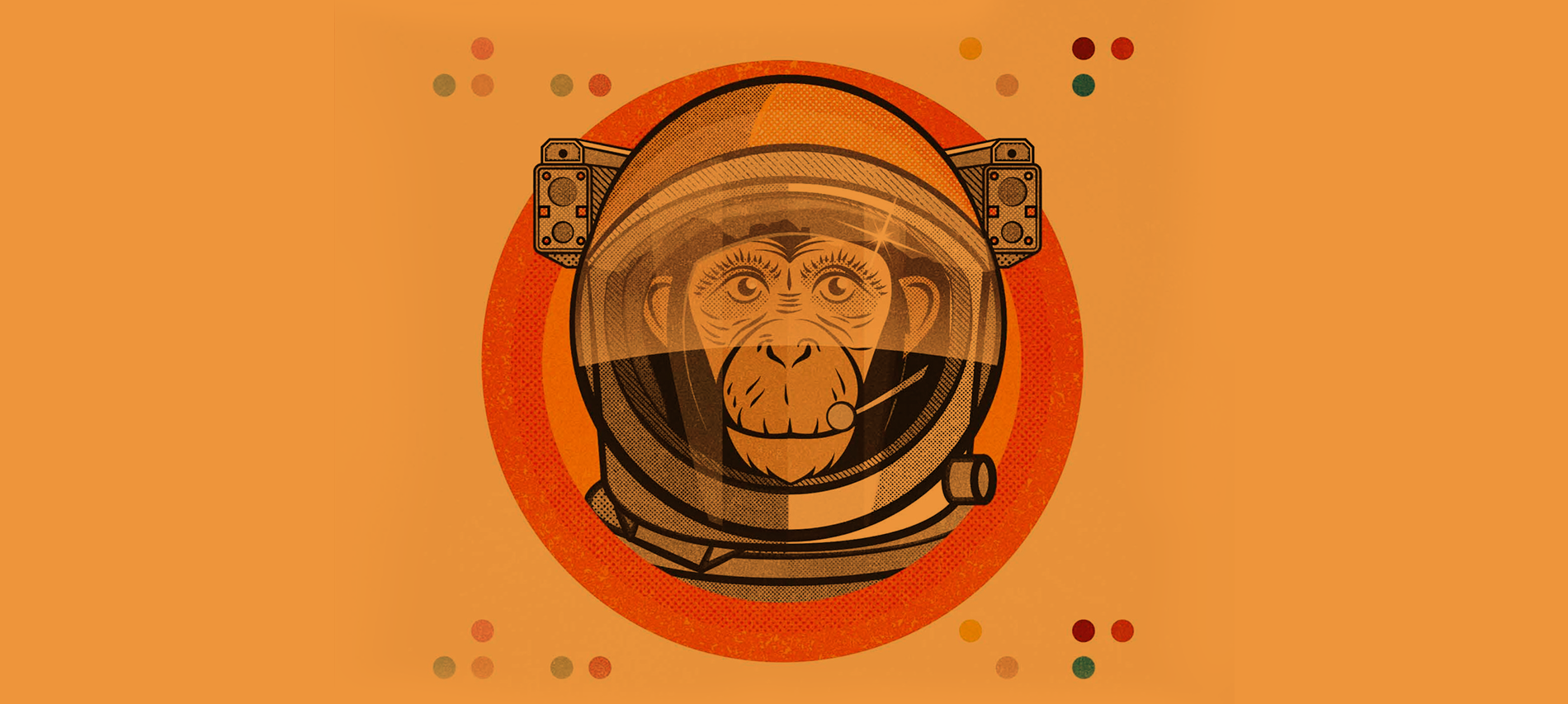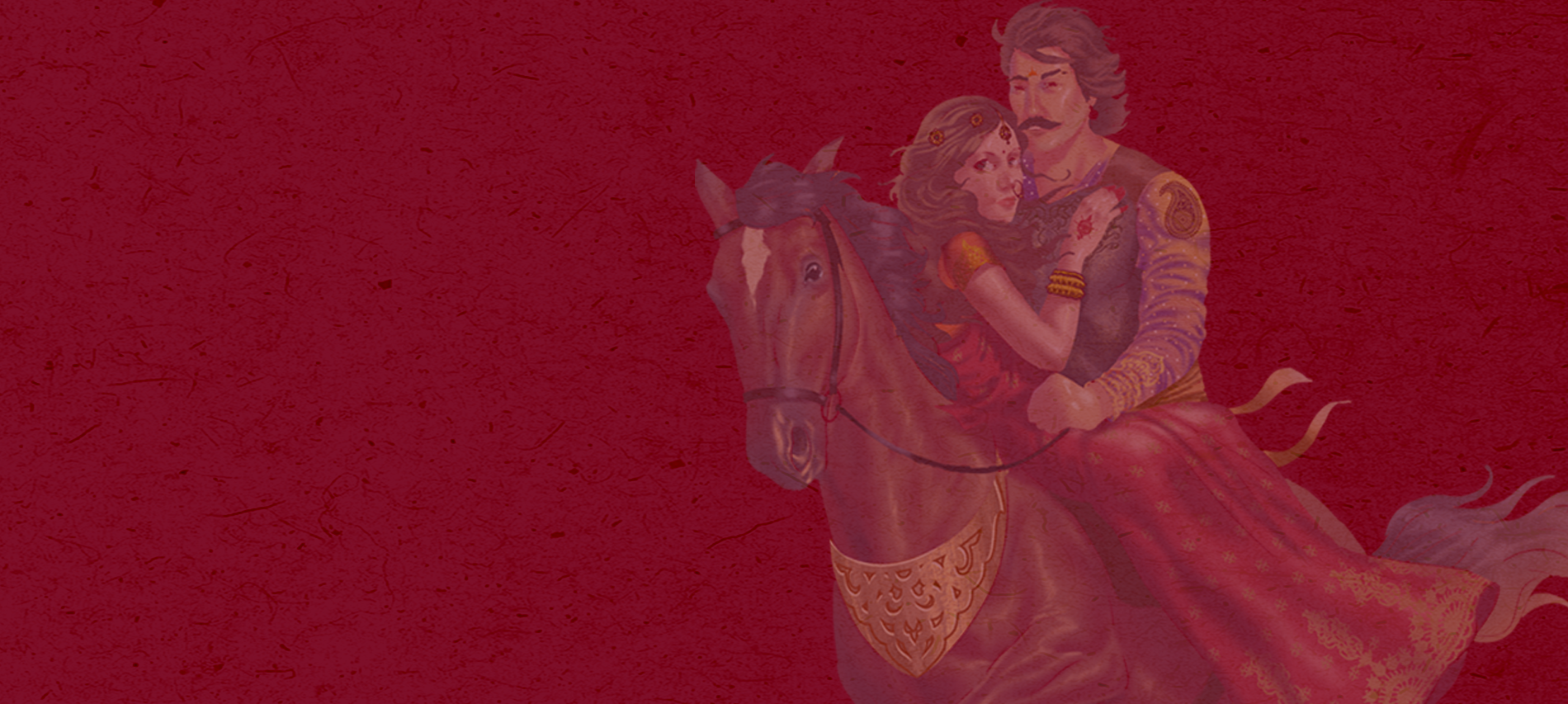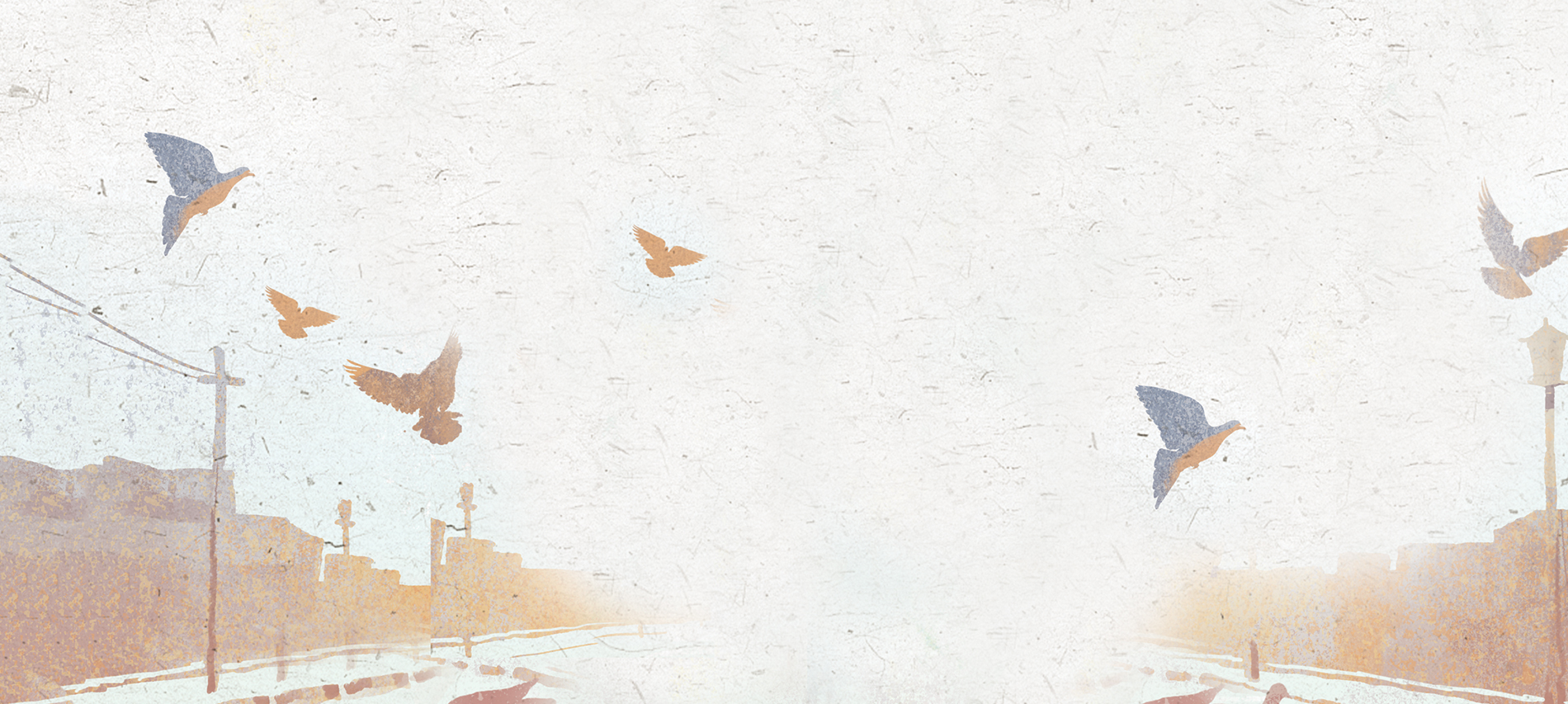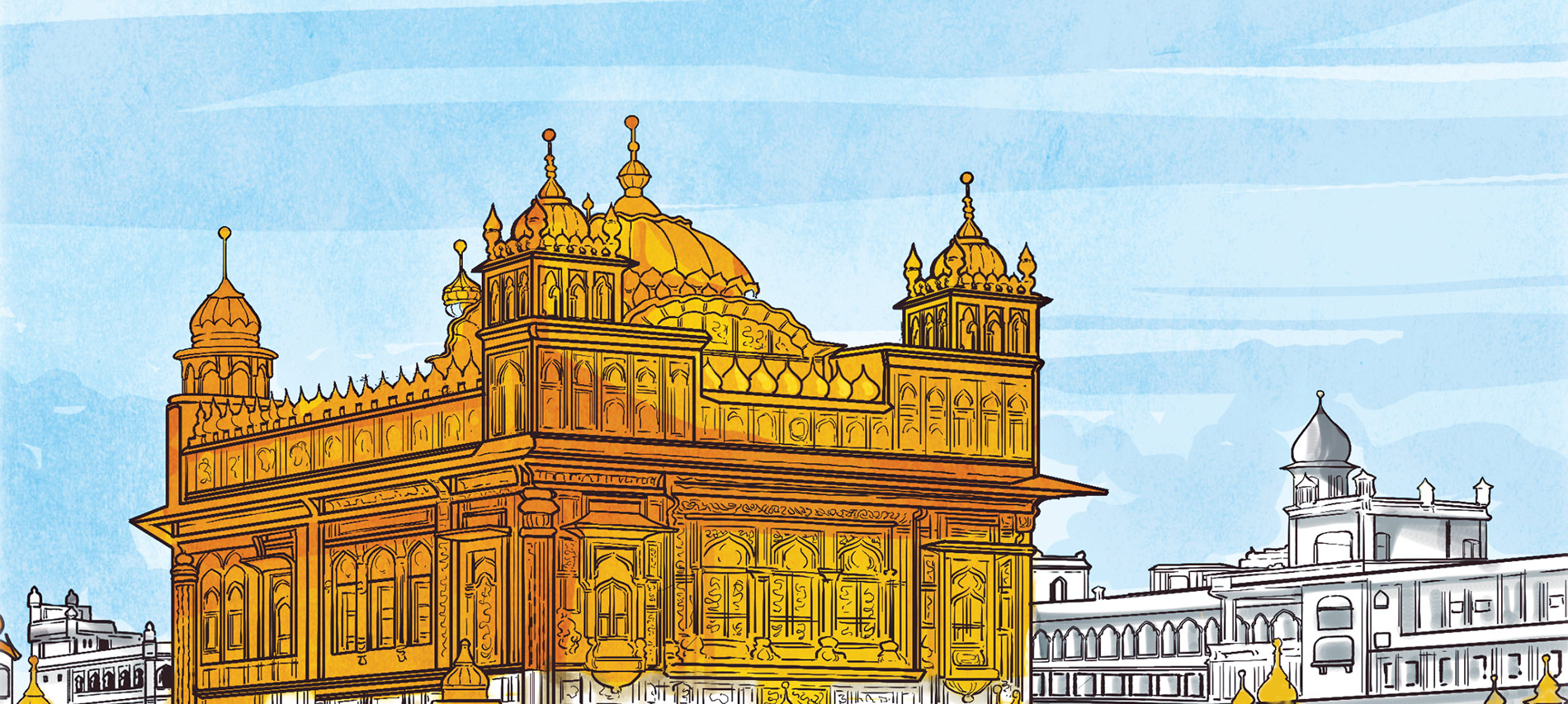Harlan Coben is one of the most famous names in the world of thrillers. He is the bestselling author of novels like The Stranger, Home, Fool me once, etc. With over 70 million books in print worldwide, his novels have been published in 43 languages worldwide.
He is back with another spine-chilling gem, Don’t Let Go which revolves around mistaken identities, dark family secrets, and mysterious conspiracies.
Here are five quotes from the book which make it unputdownable.





Don’t wait anymore and pick up this gem now!

Tag: book nibbles
Marvellous Thieves, An Excerpt
Paulo Lomas Horta in ‘Marvellous Thieves’ introduces the poets, scholars, pilgrims and charlatans who made unacknowledged contributions to Arabian Nights.
Here’s an excerpt from the book.
On March 25, 1709, a visit by Antoine Galland to the Paris apartment of his friend Paul Lucas yielded a discovery that would shape the literary legacy of the first French translator of the Thousand and One
Nights. Lucas, a collector of treasures for the court of Louis XIV, was well known for his travels in the Middle East, and his apartment was recognized as one of the marvels of the French capital. Listed in early eighteenth- century guidebooks as a place to view antiquities and other rare objects from Greece, Egypt, and Asia Minor, it drew scholars, collectors, and curiosity seekers of all kinds. Over the course of his journeys in the Mediterranean and the Ottoman Empire, Lucas had amassed enough medallions, coins, engraved stones, and gems to fill six rooms.
The herbier in his apartment contained some 3,000 varieties of plants taken from foreign locations, and the droguier was equally impressive. One visitor to the apartment in the 1730s described a remarkable sculpture of the goddess Ceres that Lucas had acquired in Athens forty years earlier. Ten feet tall, the figure was made of Oriental jasper and plated with bronze, and in Paris she enjoyed the company of many other bronzes from Greece, Macedonia, and the Levant, as well as two Persian sculptures of nude sages at prayer. Among such historically valuable pieces, stranger artifacts were scattered: petrified mushrooms, seahorses, and mummified birds encased in bronze.
Arriving at this cabinet of curiosities in 1709, Galland found an even greater treasure awaiting him: a young Maronite traveller from Aleppo by the name of Hanna Diyab who, he reported, “[knew] some very beautiful Arabic tales.” While Lucas may have viewed Diyab as just another Oriental curiosity to be displayed at the French court, Galland saw in him a solution to a frustrating predicament. After translating all the stories in his incomplete Arabic manuscript of the Thousand and One Nights, Galland was in need of more, and he had now found a storyteller who could fill the gap. In a sequence of twelve meetings between May 5 and June 2, 1709, Diyab related sixteen fantastic stories to Galland, who chose to add ten of these to the final three volumes of his French version of the Arabian Nights. Th ese storytelling sessions were the origin of some of the most famous of the Arabian Nights tales— including “Ali Baba and the Forty Thieves” and “Prince Ahmad and the Fairy Peri- Banu”— and represent a lasting contribution to a story collection that has taken its place in the canons of world literature.
It was not the first time that Galland had benefitted from the curiosities collected by Lucas. Despite his lack of respect for Lucas’s abilities as a scholar, Galland found his collection of coins very useful in his own numismatic research, and he tried to gain access to lists or drawings of these from common acquaintances when his younger colleague was unwilling to share. Just as Galland borrowed coins to add entries to his numismatic dictionary, he would borrow Diyab to add stories to his version of the Arabian Nights. Considering his impact on the first French edition of the Arabic story collection, the Syrian storyteller could be judged the most valuable curiosity Lucas ever brought back from the Levant.
Since the publication of Les mille et une nuits, Galland’s French version of the Arabian Nights, in twelve volumes from 1704 to 1717, Galland has been credited as the first “author” of the collection in European letters, and as a crucial contributor to the emergence of the “Oriental tale” in French. Not only did he translate the 282 nights of stories in his Arabic manuscript in elegant Parisian prose, but he is credited with making a more substantial contribution to the story collection by lovingly adopting and adapting the tales that he heard from Diyab in 1709.
These stories, called the “orphan tales” because (with one exception) they have no known Arabic manuscript source, are seen as central to Galland’s achievement as a translator of the Arabian Nights. In this portion of his story collection, Galland’s work was no longer simply translation or adaptation; it represented “creation.”
Jean- Paul Sermain, one of the editors of the most recent edition of Galland’s Les mille et une nuits (2004), states the case most persuasively. He argues that Galland, working from his sparse notes on Diyab’s oral per for mances, created tales of ordinary characters caught up in extraordinary predicaments. Drawing on French literary conventions, he invented dialogues and descriptions and gave narrative coherence to the tales. Characters were developed with more sympathy, and moral lessons were highlighted. In the hands of Galland, the orphan tales of Diyab spoke of the superiority of the hero of humble origins and the need to behave decently in difficult circumstances. To fill out his meager notes, the French translator drew on his scholarly knowledge and his own travels of the Orient to imagine the fabulous details of voyages, palaces, and magical objects. Sermain argues that these orphan
tales teach the reader how to read the Arabian Nights as a whole. In the space between the French fairy tale and the Arabic story cycle, Galland seemed to fashion a new genre— that of the “Oriental tale.”

Forever is True: Prologue
It has been six months since Prisha was pushed to death by the person she loved the most, Saveer. Novoneel Chakraborty is back with a riveting finale to his bestseller ‘Forever is a lie’.
Here’s an excerpt from the prologue of the book.
Fortis Hospital, Bengaluru
Private cabin, 10.35 p.m.
‘I’m sorry, Prisha, but I had no other option,’ the person said, standing close to the hospital bed on
which Prisha was lying with her eyes closed. Beneath a blanket that covered her till her bosom, she was wearing a sky-blue patient’s uniform. Her forehead was freshly bandaged. Her right hand, with a drip, was placed on her belly while the left one was by her side, a pulse-monitoring clip attached to the index finger. There was a saline water stand beside the bed. Her left leg was plastered and her face bruised. It was quiet except for the occasional beeping of the monitor that was keeping a track of her heartbeats. The room was bathed in an eerie green-coloured light.
‘Just like I had no other option with Ishanvi. She was a good girl. So were you. But you both fell for the wrong person, bad person. And sometimes, even when you aren’t at fault, life still holds you guilty and makes you pay for it. But how do you atone for something you haven’t done?’ Silence. The person grasped Prisha’s left hand. It was cold.
‘Not that I expected you to be alive but now I can at least talk to you, unlike Ishanvi.’
After a deep sigh, the person added, ‘I had tried warning you like I had tried warning Ishanvi but neither of you paid heed. Why? You were in love. Love! I hate that emotion because it is the most customizable emotion a human can feel. Its definition changes the way one thinks. Its syntax changes the way one feels. It is not like sadness or happiness. It is not absolute. Though we think it is. I hate it. In fact, hate is a soft word. I abhor love, loathe it. If you had been in your senses, I’m sure you would have asked what makes me so anti love. Well, it is a long story but I carry the moral in my heart every day. And will do so till I turn into ashes.’
There was silence. The person caressed Prisha’s forehead.
‘Unfortunately, nobody will ever know my story. But that doesn’t bother me. The only thing that bothers me is that the person who mattered the most to me will also never get to hear my story. You tell me, Prisha, is it fair to live someone else’s story all your life? But . . .’ The person leaned close to her left ear and whispered, ‘If you can listen, then listen well. Chances are you will die soon on this bed. But in case you survive, don’t push me into killing you again. Next time, there won’t be any passerby to bring you to any hospital on time. One last request: don’t test me for I’ve been killing people for a long time now. You are my only failure. And failing is something which doesn’t go down well with me.’ After staring at Prisha for a while, the person said, ‘May your soul rest in peace, Prisha. Next life, choose someone better. Choose someone who’s worth it.’
The person stopped caressing her forehead and tiptoed out of the room. Prisha had opened her eyes by then. She had been in her senses throughout. Or was she? She didn’t see the person’s face but she did feel the person’s touch. Contrary to the person’s words, the touch wasn’t threatening. The last statement had made her hair stand on its end.
This was the first time Saveer had visited her in the hospital since she had regained consciousness. Why would he want to kill her? she wondered. Or for that matter Ishanvi?
These, however, were the least of her concerns at that moment. There was something she noticed that was extremely disturbing. Prisha saw the person leaving the room. But in a woman’s attire.
What’s wrong with Saveer? she wondered. Then she thought to herself: was she hallucinating because of the heavy sedatives she had been taking for some time now? Prisha couldn’t tell. She dozed off.

The Naked Blogger of Cairo, An Excerpt
Marwan M. Kraidy in ‘The Naked Blogger of Cairo’ uncovers the creative insurgency at the heart of the Arab uprisings that took place in the Arab world from 2010 to 2012. Fueled by a desire of sovereignty, protestors flooded the streets and the media, voicing dissent through slogans, graffiti, puppetry, videos and satire that called for the overthrow of dictators and the regimes that sustained them.
Here’s an excerpt from the book.
The Naked Blogger of Cairo taps the human body as an organizing principle to understand creative insurgency. Th e body was a common thread in the massive trove of images and jo, essays and songs, videos and conversations I gathered while living in the Arab world between June 2011 and August 2012, during shorter research trips to Amsterdam, Beirut, Berlin, Cairo, Copenhagen, and Istanbul, and in protracted expeditions on the Internet. Bodies, burning with anger and defiance, throbbing with pain and hope, brazenly violating social taboos and political red lines, haunted my primary materials. A stencil graffiti to I photographed in November 2011 in Zamalek, an affluent Cairo neighborhood, features a television set with a headshot of a Pinocchio with a nose so overgrown it bursts through the screen. Here was a brief, compelling message that television is a liar, based on the body’s ability to betray falsity. It echoed fists, hands, and fingers in graffiti of the Syrian revolution I tracked in Beirut. Watching satirical videos, I wondered whom they skewered most: Was it Ben Ali, trapped on an airplane and unable to land in the jocular Journal du Zaba? Or Assad, downsized to a pathetic finger puppet in Top Goon— Diaries of a Little Dictator? Or maybe Mubarak, diminished by the splendid Laughing Cow trope to dumb, regurgitating cattle? Spectacular body acts that underlay pivotal events of the Arab uprisings take center stage in this book: Mohamed Bouazizi, the Burning Man of Tunisia; Aliaa al- Mahdy, the Naked Blogger of Cairo; Assala, the Rebellious Singer of Damascus. Regimes responded with body mutilation: hand breaking, eye sniping, virginity testing, as street art commemorated heroic bodies of martyrs pitted against repressive bodies of despots.
Why is the body fundamental to the Arab uprisings?
History tells us that corporeal metaphor is central to political power: from before Louis XIV to after Bashar al- Assad, the sovereign’s figure is the body of the realm. Writing in Baghdad and Damascus during the tenth century, the Islamic Golden Age philosopher and translator Abu Nasr alFarabi cast the ideal polity as a healthy body, and he described in The Perfect State different parts of the state as limbs, ruled by a commanding organ, the heart, that unifies their efforts toward achieving the contentment of the community. In The King’s Two Bodies: A Study in Mediaeval Political Theology, the German- American historian Ernst Kantorowicz traced a concept of “body politic” that envisions a kingdom as a human body, the king as its head and his subjects as organs and limbs. Developing fully in Elizabethan England, this notion recurred for centuries in European political thought and popular culture, from Rousseau’s essays to Shakespeare’s plays, and became influential in France in the sixteenth century. During the French Revolution, corporeal symbolism focused on separating the king’s biological body natural from his symbolic body politic.
In medieval Europe, God was considered the greatest good, and from him the body politic flowed as a unified organism. In contrast, in the months beginning with Mohamed Bouazizi’s self-immolation on December 17, 2010, the three Arab countries that we are most concerned with— Egypt, Syria, and Tunisia— were thoroughly secular autocracies. In all three, political leaders subjected clerics to their dominion and manipulated religion for political ends, but none of them derived his power from the divine, ruled in the name of God, or based foreign policy on religious grounds. Whereas in thirteenth- century Eu rope the body politic belonged to the sacred, in early twenty-first-century Egypt, Syria, and Tunisia the body politic was resolutely worldly. Body imagery is important to modern, secular absolutism, with its image of “the omniscient, omnipotent, benevolent” leader who “defies the laws of nature by his super- male energy.” As you read The Naked Blogger of Cairo, you will encounter the same language in encomia to Assad, Ben Ali, Mubarak, and Sisi. Creative insurgencies against these rulers subvert the imagery propagated by cults centered on the leader’s figure. The body is as foundational to the fall of dictators as it is essential to their rise. Over time, the notion of the body politic evolved to balance hierarchy with interdependence, leading to political pacts that preserved stability but, if broken, invited rebellion. By confirming “the irreplaceable and irreducible moral dignity and spiritual worth of individual man” and insisting that the king was an integral part of the body politic, not standing above it, the medieval notion succumbed to ideological manipulation by politicians leading the rise of new secular states. Emerging lay conceptions of the body politic pilfered at will from Christian theology, Roman law, and canon law, diluting monarchical power. By the late 1300s, bodily metaphor was moving away from the absolute concentration of power in the body of the king, as a conception of a “composite” body of authority including courts, councils, or parliaments gained ground. In the notion of distributive justice that arose to balance these different constituents, one can hear echoes, however faint, of bread- for- stability social contracts that since the 1950s have propped up Arab dictatorships. Because these bargains were fickle, bread riots occurred frequently. Since the 1980s, a combination of economic liberalization, political predation, and rising food staple prices has stretched the bargain to a breaking point.

What Health Risks Will You Be Taking on Your Trip to Mars
In ‘Science(ish)’, Rick Edwards and Dr Michael Brooks dwell on all the questions that your favourite sci-fi movies provoke. Inspired by their award-winning podcast, this popular science book dedicates each chapter to a different sci-fi classic, and wittily explores the fascinating issues that arise.
Here’s an excerpt from the chapter on the movie ‘The Martian’ which chalks out the health risk that come with a trip to Mars.
Even real astronauts, who are selected and trained to be as mission-focused as possible, can behave badly under the pressures of life in space. In 1973, some of the astronauts on the Skylab space station went on strike for a day because they felt they were being overworked. Then there was the case of the silent cosmonauts: in 1982, two of them went almost seven months on Salyut 7 without talking. Why? They didn’t like each other. If you want to know the other health risks you’ll be taking on your trip to Mars, we’ve compiled a handy list:
Space flu
Your body did not evolve to cope with microgravity. Your heart is designed to pump against gravity, so on the way to Mars, blood and other fluids will accumulate more in your upper body. The result will be a puffy face, headaches, nasal congestion (in space, everyone will hear you sniff) and skinny little chicken legs. Your diaphragm will float upwards too, making it a little more difficult to breathe. Your back will ache because your vertebrae will float apart without gravity. (On the plus side, you could grow a couple of inches in height.)
Muscle loss
You’ll lose muscle mass because you just don’t need to work as hard in microgravity. That means fewer calories are being burned, though. It’s lucky the food is going to be so terrible, because if you don’t exercise whenever possible, you are going to go to seed. And nobody wants a fat, smelly Martian.
B.O.
Yes, you will smell. Washing is difficult in space. Not only because a shower is surprisingly gravity-dependent, but because water is a precious resource.
Nausea
That shift of fluids affects the inner ear, making you nauseous in the first few days. You’re very likely to be spacesick. Just under half of all astronauts are, and they’ve all been chosen because they’ve got the ‘right stuff’. So be prepared to vomit, suffer headaches and dizziness, and generally want to lie down. Except there is no down. Which, as it happens, will also add to your general confusion and disorientation.
Insomnia
Your sleep patterns are going to change radically. It’s often noisy on a spacecraft, and you’ll struggle to fall asleep. Your daily sleep/wake cycles are toast, because there is no pattern of darkness and light to give your body the necessary cues. Fatigue is going to hit you like a late-running train. As well as leaving you tired, disoriented and fuzzy-brained, the lack of sleep will also affect your immune system. You’re going to catch colds and other viral infections if fellow astronauts are carrying any, and you’ll succumb more easily to bacterial infection. Antivirals and antibiotics degrade after a few months, so you’ll be mixing your own medicines from dry ingredients. If you’re awake enough.
Bone loss
Eventually, you’ll suffer bone loss equivalent to a pensioner, because in microgravity astronauts excrete calcium and phosphorus. That means your bones will fracture more easily, and you might have to pass stones through your urinary tract.
Psychosis
Psychological effects of the journey include depression, anxiety, insomnia (ha! and you’re already so tired!) and, in extreme cases, psychosis.
Malformed cells
Oh and your cells, especially your blood cells, may not grow and function properly in the long term, because the lack of gravity will change their shape. We don’t yet know what the effects of this will be, but come on – it’s unlikely to be good.

The Birth of Prithviraj Chauhan, An Excerpt
Prithviraj Chauhan was destiny’s chosen one, singled out for glory and greatness. Anuja Chandramouli is back with an endearing tale of the legendary warrior who lives on in the hearts of those who remember his unmatched valour and timeless heroism.
Here’s an excerpt from the book.
The queen tossed and turned; her sweat-streaked body caused the soft sheets to cling to her contours as she stifled a scream that fought to burst from her lips. A good girl must be seen not heard, she had been taught since childhood.
Silently she pleaded with she knew not whom, begging to escape the terror that was engulfing her. When that failed, she tried to wake up. Her efforts were entirely futile. No matter how much she tried, a force she could not withstand tore her apart, dragging her along the serpentine alleys of her simmering subconscious.
Propelled along a rocky slope, she felt the flesh scraped off her delicate feet, which were decorated with intricate henna patterns, leaving them battered and bloodied. Dragged along sandy plains, under a blazing sun, her skin, softened with milk and honey, caught fire. She wrapped her burning arms protectively around her tender belly and snarled savagely at the elements.
Then she was swimming against the currents of a raging river as predators with serrated teeth and spiked tails pursued her ruthlessly. The wind snatched her from their jaws as they were about to swallow her and lifted her high up in the air. Shrieking its terrible intent into her ears, it ripped off her garments before releasing her in endless space.
As she plunged into the depths below, she could not hold back the primeval screams of agony from bursting out in a shrill cacophony. Then she was falling through emptiness, plummeting towards certain death. Shutting her eyes tight, her arms flailing, she forced her leaden legs to move, desperate to arrest her fall.
Then with a suddenness that made her dizzy, everything went still. Holding her swollen belly in her arms, she opened her eyes. She was standing at the threshold of a stone temple. Before her, was an altar where a smokeless fire was burning. Vigorous and strong, it was brighter than her eyes could bear.
Shining with divine vehemence, it beckoned her forward. Helpless in front of the hypnotic pull of those ancient flames, she stood before it, so close that the heat scoured her clean even as her heart grew hot. And yet, she could not draw back.
Enraptured, she stared into its depths. She watched the mesmerizing dance of the flames as they swayed in discord to the crackling cadence of the age-old rhythms, orchestrated by the divine father out of his deep love for the sacred mother. The sky and the earth—always together; forever apart.
Tears sprang into her eyes and she clasped her hands in prayer as the earth mother addressed her throbbing heart.
What is it that you would know of me?
‘Tell me of the child I bear in my womb.’
A mother always knows. A mother must.
‘My boy will be the greatest of kings. A mighty warrior. A lion among men and as such will be entitled to the king’s share of success, prosperity and happiness. He will shine with the brilliance of a thousand suns. His name will live forever.’
So it shall be. The flame in his soul is destined to burn for as long as his lion’s heart can bear it. Blessed as he is with the tejas of the divine, he will shine brightest when he makes the ascent to the pinnacle of glory, just before his swift descent to darkness and the depths of abject failure. For so it must be.
‘Never! I will never allow such fate to befall my son.’
A mother is a fool! He was never yours alone. And never will be. Prepare yourself for the reign of the king of the earth. For fame and fortune, love and death, glory and grief!
The flames rose higher and higher, oblivious to the mother who wailed in misery. Blinded by the all-encompassing radiance, magnified by the strength of her tears, she was ill-prepared for the darkness that descended without warning, snuffing out every trace of the sacred fire.
The silence was broken only by infernal howls of abject sorrow—a mother’s terrible lament—amid the hushed murmur of a premonition, repeated over and over.
Prithviraj! Prithviraj! Prithviraj! King of the earth!
All around there was nothing but darkness. And the memory of light.

“An entire year without school! What more could an eight-year-old boy ask for?”: ‘Looking for the Rainbow’ — An Excerpt
Ruskin Bond ran away from his prison-like boarding school in the hills to go and live with his father in Delhi. In ‘Looking for the Rainbows’, Ruskin Bond regales in his past and revisits the beautiful days he spent with his father going to the cinema, singing songs, reading books and taking long walks.
Here’s a short glimpse from ‘Looking for the Rainbow’, holding Ruskin’s hand and going back to where it all started.
An entire year without school! What more could an eight-year-old boy ask for? Not what his parents would ask for, certainly; but after serving a two-year sentence in a fun-less convent school in the hills, I was more than happy to take a long, enforced break from gloomy classrooms, smelly dormitories, an overcrowded playing field and a diet of cabbage soup and boiled meat.
That was the sort of school I’d escaped from— or rather, been plucked out of by my father in the middle of the summer term.
It was 1942, the middle of World War II, and my parents too had been at war with each other. They had, in fact, separated, and my mother was about to marry again. My father was serving in the Royal Air Force, and was living on his own in an Air Force hutment in New Delhi, working in the Codes and Cyphers section at Air Headquarters. I was particularly close to my father, and I insisted on going to live with him rather than to a new and unknown home.
My mother took me out of the hill school near her home in Dehradun and put me on the train to Delhi.
My father was on the station platform in Delhi, looking very smart in his RAF uniform. He hugged me, took me by the hand and led me to the station restaurant, where we had a healthy breakfast. Even a railway breakfast was better than the fare we had at school!
We were joined by my uncle Fred, who was then the station superintendent at the Old Delhi station. He had a bungalow nearby. But my father’s quarters, or hutments as they were called, were at the other end of Delhi, on Humayun Road, where the new capital of India had been created.
We must remember that up until then, Calcutta had been the capital of British-ruled India, and Simla, the summer capital. Now the capital was New Delhi, still very new and still coming up, and Simla, of course, was much nearer.
The hutment was a bit of a surprise. It consisted of two brick-walled rooms, a kitchen and a bathroom. And it was in the middle of nowhere.
Humayun Road, in those far-off days, was simply a lane running through a scrub forest. It had been cleared in places so that these wartime hutments could come up. But there were more jackals than people in the area. And snakes too.
As Ruskin prepared to spend some of the most wonderful days of his life with his father in ‘Looking for the Rainbow’, let’s gear up for the next part in the enchanting series where Ruskin’s life is about to take a drastic turn! Pre-order your copy of ‘Till the Clouds Roll by’ today!

When Young Chintamani Woke Up in a Place He Had Only Read About: ‘Lost in Time: Ghatotkacha and the Game of Illusions’ — An Excerpt
Chintamani Dev Gupta is on a trip to a bird camp near Lake Sat Tal! Away from the drudgery of urban life in Gurgaon, Chintamani finds himself near the cool, blue water of the lake and dives in for a swim. But when he emerges out of it, things look different. Where is he?
Find out with Namita Gokhale’s beautiful new novel for your little one, ‘Lost in Time: Ghatotkacha and the Game of Illusions’.
Here’s an excerpt from the book telling you where it all started.
A figure was approaching. He, she, it, was holding a burning branch of wood and breathing deeply. I had slouched down, suddenly tired and drowsy, in a bed of dry leaves. An enormous face came into view a long way above me. I wondered if I was dreaming, but the warmth from the flaming torch seeped into my bones, as did the long, careful breaths of this giant. I sat up bolt upright.
He was sniffing me, and I could smell him too. The tang of leaves and the forest, with a whiff of animal and the scent of human.
‘Who are you?’ he asked in a language I didn’t understand. And yet, strangely enough, I did. Was this telepathy?
‘And who are you?!’ I asked back, the question was put forward in sheer panic mixed with some cunning. I was still trying to take in the awesome size of this Godzilla, and figured my question might help establish a bond with this primeval creature. But then, how would he understand my question, which probably sounded more like a squeal?
‘I am Ghatotkacha,’ he replied. ‘I am the rakshasa Ghatotkacha, born of the lord Bhimasena and the lady Hidimbi. I rule over hill and vale, forest and stream to protect the spirit of the forest and all who live in it.’
I understood this too, through some sort of teleprompter that seemed to have lodged itself somewhere in the left lobe of my brain like a Google Translate implant.
‘I am Chintamani Dev Gupta,’ I replied tentatively. But it wasn’t me speaking at all, perhaps some sort of decoder that seemed to be picking up on signals from my brain. Take control, I told myself, take control, or you will lose this mind game.
‘I am speaking Paisachi, but I am fluent in Prakrit and Sanskrit too,’ the giant replied.
He had huge red eyes that were lit up by the burning torch he held in his hand. But they were kind eyes . . . there was not even a hint of cruelty in them.
‘And don’t worry, I am not trying to take control of your mind!’
Weird, weirder, weirdest. He could actually read my mind! Holy cow! This situation was just impossible. I pinched myself even harder this time, so that I might now wake up from this fast-accelerating nightmare.
It only gets “weird, weirder, weirdest” from here on! You wouldn’t want to miss it! Grab your copy and dive right into the charming world of Ghatotkacha!

Let’s Revisit the Golden Temple with Amma and Her Boys!
Remember when Bhakti Mathur and her boys took you and your little one on an enchanting journey to Amritsar’s Golden Temple? The beautiful architecture of one of the holiest places for Sikhs, the delectable langar served after prayers, a dip in the holy sarovar — Amma and her boys take you through an experience that stays with you forever.
Let’s take you through the Golden Temple once again through the pages of Amma, Take Me to the Golden Temple.
The rich history of the Golden Temple that stands tall for decades

The yummy taste of the karah prasad!

The peace and calm of the glorious inner sanctum

Taking a dip in the holy water facing Harmandir Sahib

The exquisite, golden palanquin carrying the Guru Granth Sahib

The history of the Golden Temple comes alive with the stunning illustrations in Bhakti Mathur’s Amma, Take Me to the Golden Temple.
Now get ready to join Amma and her boys on an exciting trip to the famous Tirupati! Pre-order your copy today!

Meet Rishi Mathur—An Excerpt from ‘Love Curry’
Pankaj Dubey is the bestselling author of —’What A Loser!’, ‘Ishqiyapa—To Hell with Love’. His latest book ‘Love Curry’ is about three flat mates in London who fall in love with the same girl. This make them arch-rivals but when things take a turn, they don’t find anyone else but eachother to turn to.
Here’s an excerpt from the book which introduces you to one of the flat mates.
He came from Agra—the city of the Taj Mahal, a monument that stood for a timeless love. A monument that simply kept standing when his love had wandered off. No wonder he had left the city and its Mahal. Choosing England instead with all its apparent coldness. He wanted to be away from all that had always been with him. No one knew him here or cared to. But there was a comfort in this anonymity. It was only months after he shifted to house number 104, George Street, that some of his neighbours began to recognize him, or what little they saw of him. For he would leave in the morning and return only after it got dark. He could have been the night watchman for all they knew. No words he exchanged with anyone. No twitch of a smile to a face that looked familiar. His socializing was restricted to giving someone way if they were in a rush.
His name was Rishi Mathur, the guy whose door was locked. The occupant of the third room in house number 104. A house that was almost a subcontinent, harbouring as it did three South Asian boys, flying the flags of India, Pakistan and Bangladesh. Besides the Indian—Rishi—docking in the house were Shehzad from Dhaka and Ali from Lahore.
Rishi in Agra had been quite a talkative fellow. This was a different version. No, the Queen wasn’t to blame for this sudden, sullen silence. At the heart of the matter was a breakup. One he was finding difficult to chew. So he went quiet and fled to England. He had seen people go to London to study or to get rich. But he came to recover. People arrived here with big dreams. He landed with promises—three promises that he’d made to himself. Three promises that were perhaps the opposite of what any other immigrant from India would have made
The first was to stay away from girls—especially the beautiful ones. He could not trust them now.
The second vow was to never return home. He would do all it took to make this island nation his new home. There was nothing waiting for him in India—and absolutely no one that mattered to his broken heart.
Thirdly, he would lie low. No soaring aspirations for him. No growth, no riches. He would not be the next British-Indian industrialist or Indian lord in Parliament. All he would be was a nobody.
It was easy to do the third thing. He simply didn’t need to do much. The limelight ignored him automatically. High denomination pounds stayed away. The few notes he earned kept hopping in and out of his wallet. The heartbroken hero strived for no comeback as a happy success story. All he wanted and got was a corner seat in life.
No one knew what Rishi did, not even his two housemates. Shehzad from Dhaka and Ali from Lahore lived in the same house with him, but in blissful ignorance. Each one had a story of his own that each wished to keep to himself. Though they shared a subcontinent and now a house, the three were reluctant to overlook the fact that they came from three different countries. This fourth country that they came to live in however threw them together in more ways than one. For starters, they got branded ‘Bloody Pakis’ the second they set foot here!
In their three-bedroom house, the room in the middle went to Rishi. Shehzad occupied the one to his left. The Bangladeshi was almost twenty-three, but still had a somewhat wild streak, which was announced by the sheer number of tattoos covering his five-foot-eight-inch frame. No, he didn’t need them to enhance his looks—he had plenty of those already. His angular face and curly fringe were a photographer’s dream. The decoupage tattoos advertised the person he was—a question mark. No one knew what he would say or do next, not even Shehzad. Only one thing was reasonably clear— rehab would figure somewhere in his future! For, the fellow smoked up relentlessly.
What made him so unpredictable was an even bigger mystery. No one knew the painful backstory. It featured a father who was an airline pilot in his home country. But that was before he lost one of his limbs in a ground accident. The tragedy, however, didn’t end there. His mother eloped soon after, forsaking his father for another pilot who was a friend of the family. The six-year-old boy was left behind with a handicapped father, a pit of a future and so many wagging tongues.








